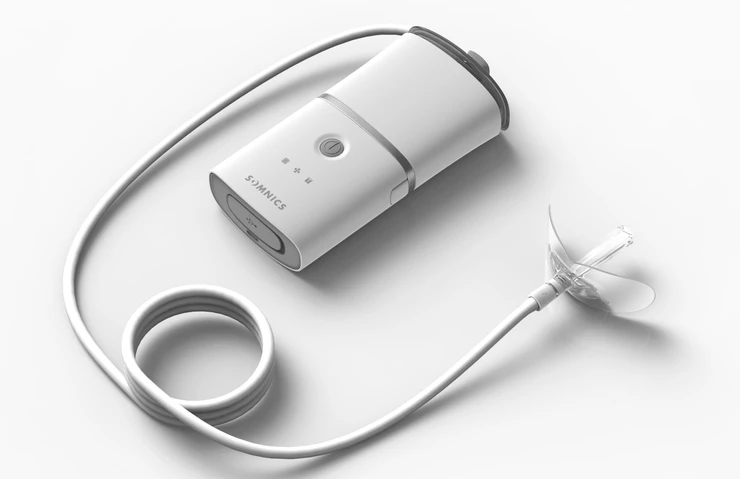Efficient Insomnia Therapy - Reclaim Your Restful Nights
Efficient Insomnia Therapy - Reclaim Your Restful Nights
Blog Article
Reliable Treatment Solutions for Taking Care Of Sleep Disorders and Enhancing Peaceful Sleep
In the realm of healthcare, the management of sleep conditions and the quest for restful sleep are critical parts of total health. As we navigate the intricate landscape of rest problems and seek to enhance our sleep experience, a deeper understanding of these treatment solutions might hold the key to unlocking a more rejuvenating and meeting corrective trip.
Cognitive Behavior Modification for Insomnia (CBT-I)
Cognitive Behavior Modification for Sleeplessness (CBT-I) is a structured, evidence-based treatment technique that focuses on attending to the underlying variables contributing to sleep disturbances. This type of treatment intends to customize actions and thoughts that intensify sleeplessness, inevitably advertising healthy and balanced rest patterns. CBT-I normally entails numerous crucial components, consisting of cognitive treatment, rest constraint, stimulus control, and rest health education.
Cognitive treatment aids individuals identify and transform negative thought patterns and ideas concerning sleep that might be impeding their ability to drop or remain asleep. Sleep limitation involves limiting the amount of time invested in bed to match the individual's real sleep duration, therefore raising rest performance (sleep improvement therapy). Stimulation control strategies assist establish a solid organization in between the bed and sleep by encouraging people to go to bed only when sleepy and to avoid participating in boosting tasks in bed
Moreover, sleep hygiene education and learning concentrates on developing healthy rest routines, such as maintaining a constant sleep routine, creating a relaxing going to bed routine, and maximizing the sleep setting. By dealing with these variables thoroughly, CBT-I supplies an efficient non-pharmacological intervention for handling sleeping disorders and boosting general sleep high quality.
Rest Health Practices
Having developed the structure of cognitive restructuring and behavioral adjustments in attending to sleeplessness through Cognitive Behavior modification for Insomnia (CBT-I), the focus now changes towards discovering vital Rest Health Practices for maintaining optimal sleep top quality and general well-being.
Sleep hygiene practices encompass a series of habits and environmental elements that can dramatically influence one's ability to drop off to sleep and remain asleep throughout the evening. Regular rest and wake times, creating a relaxing going to bed regimen, and optimizing the rest atmosphere by maintaining it dark, silent, and cool are critical parts of excellent rest health. Restricting exposure to screens prior to going to bed, avoiding energizers like high levels of caffeine close to going to bed, and participating in regular physical task throughout the day can additionally advertise far better rest quality.
Furthermore, exercising leisure methods such as deep breathing exercises or reflection before bed can assist soothe the mind and prepare the body for rest. By integrating these sleep hygiene practices right into one's everyday routine, people can establish a healthy and balanced sleep pattern that supports restful rest and overall well-being.
Relaxation Strategies and Mindfulness
Applying relaxation strategies and mindfulness techniques can play an essential role in cultivating a feeling of tranquility and promoting top quality sleep. insomnia specialist. These strategies intend to silent the mind, reduce anxiety, and create an ideal environment for relaxed sleep. One commonly exercised technique is deep breathing exercises, where people concentrate on slow, deep breaths to unwind the mind and body. Modern muscular tissue relaxation entails tensing and afterwards launching each muscle group, advertising physical leisure. Additionally, assisted dsm 5 insomnia imagery can aid carry people to a calm location in their minds, helping in tension reduction and enhancing sleep quality.
Mindfulness techniques, such as meditation and yoga, are likewise efficient in advertising leisure and boosting rest. Mindfulness motivates people to stay present in the minute, releasing fret about the past or future. By integrating these methods into a bedtime regimen, people can indicate to their bodies that it is time to prepare and take a break for rest. Overall, incorporating relaxation methods and mindfulness methods can dramatically add to taking care of sleep disorders and improving general rest high quality.

Medicine Options for Sleep Disorders
After discovering leisure techniques and mindfulness techniques as non-pharmacological interventions for enhancing rest top quality, it is important to take into consideration medicine alternatives for people with sleep disorders. have a peek here In cases where way of life changes and therapy do not offer sufficient alleviation, medicine can be a valuable device in taking care of rest disturbances.
Commonly recommended medications for rest conditions include benzodiazepines, non-benzodiazepine hypnotics, antidepressants, and melatonin receptor agonists. Antidepressants, such as trazodone, can be useful for individuals with co-occurring depression and rest disruptions - sleep therapy.
It is vital for individuals to talk to a healthcare provider to establish the most appropriate medication alternative based on their certain rest condition and medical history.
Light Treatment for Circadian Rhythm Policy
Light treatment, likewise called phototherapy, is a non-invasive treatment approach used to manage circadian rhythms and improve sleep-wake cycles. This treatment includes direct exposure to bright light that resembles all-natural sunshine, which helps to reset the body's biological rhythm. By exposing people to specific wavelengths of light, commonly in the early morning or evening relying on the wanted impact, light treatment can efficiently change the body clock to promote wakefulness throughout the day and improve relaxing rest at night.
Research study has actually revealed that light treatment can be particularly beneficial for individuals with circadian rhythm disorders, such as delayed sleep phase disorder or jet lag. It can also be handy for those experiencing seasonal depression (SAD), a sort of anxiety that usually happens during the winter season months when all-natural light exposure is decreased. Light therapy is normally well-tolerated and can be utilized combined with various click reference other therapy approaches for sleep conditions to enhance results and enhance total sleep quality.
Conclusion
In verdict, effective therapy solutions for taking care of sleep conditions and improving relaxing rest consist of Cognitive Behavior modification for Sleeplessness (CBT-I), sleep hygiene practices, relaxation strategies and mindfulness, drug options, and light therapy for circadian rhythm policy. These techniques can help individuals enhance their rest high quality and overall wellness. It is necessary to speak with a health care supplier to establish the most ideal approach for dealing with sleep concerns.
As we browse the detailed landscape of sleep disorders and look for to improve our rest experience, a deeper understanding of these therapy remedies may hold the trick to unlocking a more relaxing and fulfilling corrective journey.
Rest limitation entails limiting the amount of time spent in bed to match the person's actual rest period, thus boosting sleep performance. Consistent sleep and wake times, developing a relaxing bedtime regimen, and maximizing the rest environment by keeping it dark, silent, and cool are vital elements of good sleep health. Light treatment is usually well-tolerated and can be used in combination with other therapy methods for rest problems to optimize end results and improve general rest quality.

Report this page